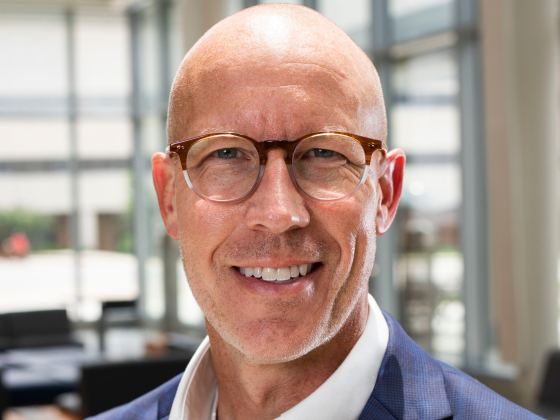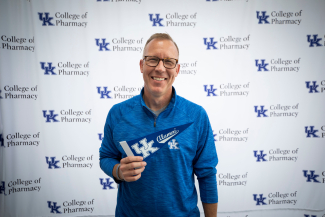“When a student tells me they found something they didn’t expect to love because of my class—that’s the moment I feel proudest.”
Before he ever wore a white coat or taught a classroom full of future pharmacists, Dr. Craig Martin could be found behind the counter at Grant County Drugs in Dry Ridge, Kentucky, watching his hometown pharmacist care for the community with quiet generosity and steady presence. Those early experiences shaped a philosophy of leadership that Martin still carries today: success is built on relationships, integrity, and showing up for others.
A graduate of the UK College of Pharmacy, Dr. Martin has spent more than 20 years serving the College as a resident, clinician, educator, advisor, and administrator. Most recently, he served as Associate Dean for Operations, a role that touched nearly every part of the College’s ecosystem—from finance and facilities to student services and external partnerships. Trained as an infectious diseases specialist, Dr. Martin has also taught and mentored hundreds of pharmacists, treasuring the “lightbulb moments” when students discover a new passion or push themselves to think more deeply about patient care.
Now stepping into the role of Interim Dean, Dr. Martin says his priorities remain focused on people. “Numbers and policies are tools, not the point,” he explains. “Our goal is to ensure that students can thrive, faculty can innovate, and staff feel seen and valued in their work.” Known for his calm approach and ability to make space for others to shine, Dr. Martin brings a strong foundation of experience and a deep commitment to the College’s mission.
“The best things come from small, intentional choices,” he says. “Whether it’s building a habit, deepening a relationship, or guiding a college through change, it’s not about quick wins. It’s about steady movement in the right direction.”


